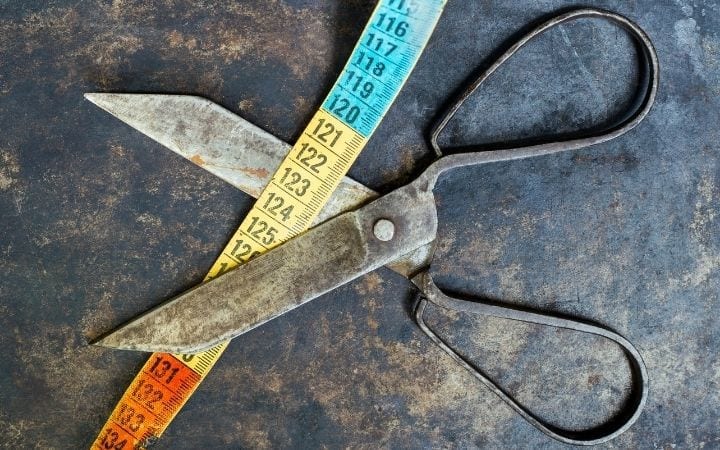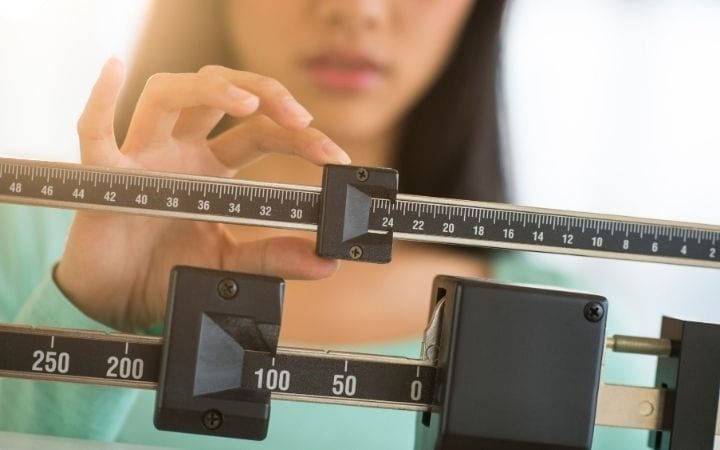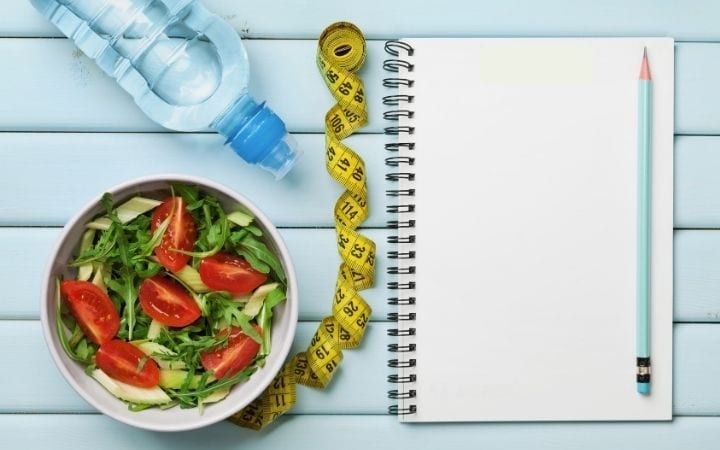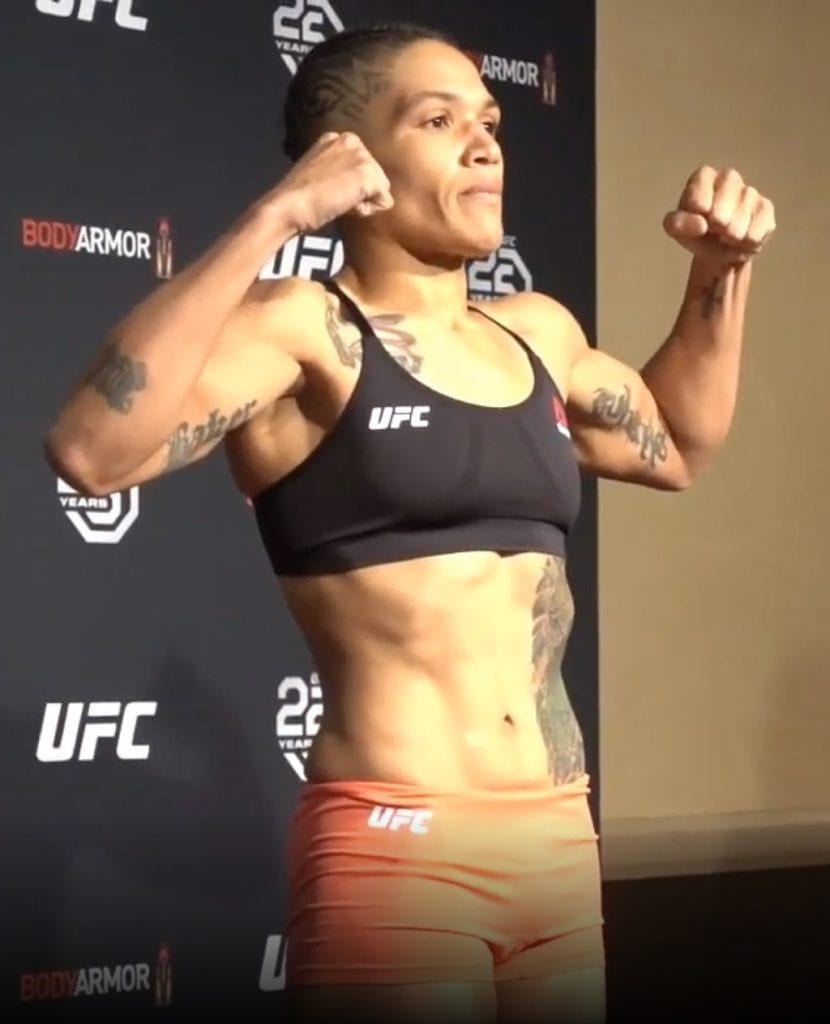If you’ve competed in a Jiu Jitsu tournament, you’ve most likely considered cutting weight at some point. Whether to have an advantage during competition or to avoid being at a disadvantage at the bottom of your weight class, cutting weight should not be taken lightly.
It can be outright dangerous, and some serious thinking should go into the decision. Cutting weight for BJJ should be done systematically with a well thought out plan.
Why Do BJJ Athletes Cut Weight?
Under the International Brazilian Jiu Jitsu Federation (IBJJF) rules, weight classes range from under 127 lbs at Rooster to Ultra Heavy which starts at 221 lbs and has no maximum weight. There are about 15lbs between each weight class.
The advantage of cutting weight is to have the upper hand in your weight class by becoming the heaviest opponent in your division.
For example, say you weigh 170 lbs (IBJJF middleweight). You could have an advantage in strength and pressure over your opponents if you dropped down to the lightweight class at 168 lbs, because you would be at the heavy end of the weight class.
Although this might seem like a good strategy, there is an ethical issue regarding competing in a lower weight class that many don’t consider. Joe Rogan even posed the question: is it moral to cut weight, or is it “legal cheating?”
In many competitions, you can cut weight, weigh-in, and have time to eat and rehydrate before your match allowing you to regain some weight back. In this case, once you’ve increased your weight, you may not truly be competing in that weight class anymore.
Yet, your opponent must still compete against you because 24 hours ago you weighed in at the correct range. This is especially prevalent in the UFC where weigh-ins take place the day before a fight.
On the other hand, there are competitions such as IBJJF where post-weigh in rehydration and weight gain is not possible. During IBJJF tournaments, competitors weigh in on the day of their tournaments, usually as close as possible to their first match, giving them no time to recover from drastic weight cuts.
The Dangers Of Cutting Weight For BJJ
Although cutting weight can increase the chance of a potential win, there are significant disadvantages. For one, cutting weight will generally weaken your body, especially if you don’t cut properly.
You run the risk of ruining your goal of having a strength advantage over your opponent. If you don’t cut properly, you can become fatigued and disoriented while competing. You not only risk losing but, in a weakened state, you also may incur a severe injury.
Cutting weight can be dangerous and can lead to acute renal (kidney) failure due to extreme dehydration. Kidney failure occurs when a person becomes so dehydrated that it causes the blood flow to their kidneys to slow.
When dehydration is taken to an extreme, blood flow is slowed for extended periods of time causing the kidneys to stop working altogether. This is potentially fatal.
Cutting weight should not become a way of life, and should not be done often. The best thing to do is live a healthy lifestyle so you don’t have to cut weight in the first place. And if you live in a healthy way, (eat right, get enough sleep, get adequate hydration) your body will be in a better position to handle a weight cut.
If you must cut weight, make sure you’re adequately nourished and hydrated throughout the process. Taking it slow is the best approach to avoid severe complications and reactions.
How To Cut Weight The Right Way
Cutting weight in a few days or 24 hours is possible, but it can be a recipe for disaster. You can suffer in the long run if done regularly. And short term, it can cost you energy and power.
No one wants to go into a fight with the extreme disadvantage of fatigue and weakness. But having the knowledge and tools to cut weight the right way can give you a successful outcome.
Most agree that a low carb diet is the best way to cut weight. Make a plan, meal prep, but also make sure you’re getting enough calories. What you eat makes a difference. Don’t starve yourself.
According to nutrition consultant Jordan Syatt, there are three ways to cut weight safely. You can choose to lose weight over 3-4 months, 1-2 weeks, or a combination of the two where you would start slowly 1-2 months ahead of time and speed up the weight cut the closer you get to the competition.
If you choose the slow approach, the key is to reduce calories and set a macros plan (protein, carbs, and fat). The first thing you should do is increase your protein intake. Carbs and fat should be cycled around training days, with higher carb intake on training days with a lower carb/higher fat intake on non-training days.
When reducing calories, don’t just pick some unattainable number and starve yourself; calculate a safe caloric deficit that will still leave you with energy.
In terms of hydration, maintaining proper fluid intake during your weight cut and then reducing fluids on the last day is a better approach than cutting fluids the entire time. This approach will keep you hydrated long term, so you will only put the stress of dehydration on your body for a short time.
Weight Cutting Gone Wrong
Professional fighters cut weight regularly. It goes hand in hand with fighting nowadays, especially in the world of MMA. With the frequency at which pro fighters cut weight, it can sometimes go drastically wrong.
Sijara Eubanks
One of the most extreme examples of the dangers of weight cuts happened in The Ultimate Fighter (TUF) Season 26. Sijara Eubanks had to cut weight three times, including a weight cut for her fight for the Flyweight title.
During her third weight cut, she was taken to the hospital and diagnosed with kidney failure due to extreme dehydration. She was removed from TUF and lost her chance at the title.
Renan Barao
Renan Barao was forced to drop out of UFC 177 due to medical issues related to an attempted weight cut. During his cut, he fainted, hit his head, and was taken to the hospital. He then decided to withdraw from the fight altogether.
Craig White
Craig White drastically cut weight for UFC 130. He attempted to lose 46 lbs in 14 days while living off 600 calories a day. Although he reached his goal and made weight, he lost his fight in the first round.
Summary
Cutting weight is a big decision. First, consider what your motives are. Then decide if you have enough time to do it healthily. If you choose to cut weight, set a plan and stick to it. Eat nutritious food, stick to your macros, and make sure you have a proper hydration plan. Remember you want to make weight while also maintaining optimal performance levels.
Kimberly is a Jiu Jitsu purple belt who also holds a black belt in Siljun Dobup Korean Sword Arts. When she’s not on the mats, she enjoys immersing herself in nature or a good book. She trains in New Jersey with her 9-year-old son.





